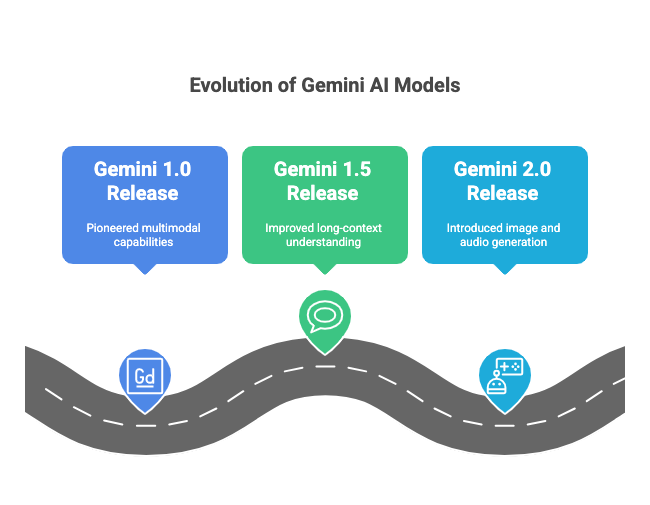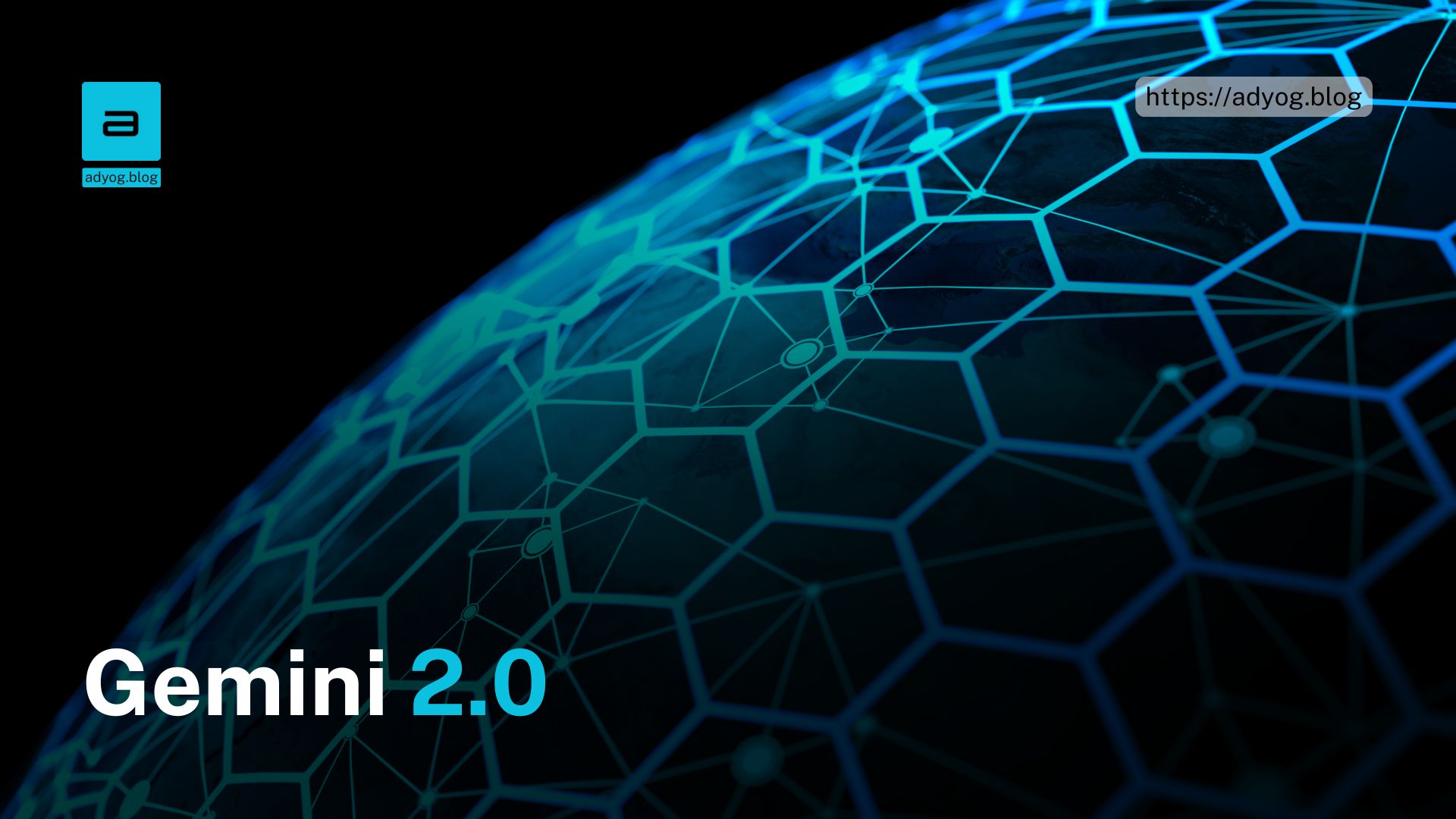The release of Gemini 2.0 by Google represents a monumental leap in artificial intelligence, heralding the era of agentic AI. Unlike traditional AI, which passively processes data, Gemini 2.0 agentic AI takes proactive steps, offering goal-directed behavior and real-world decision-making capabilities. With this innovative model, Google is reshaping how AI interacts with users and integrates into daily life, setting new benchmarks for functionality and collaboration.
A Leap Towards Transformational AI
Reflecting Google’s 26-year mission to make information universally accessible and useful, Sundar Pichai aptly summarized Gemini 2.0’s purpose: “If Gemini 1.0 was about organizing and understanding information, Gemini 2.0 is about making it much more useful.”
Key Evolutionary Steps:
- Gemini 1.0 (December 2022): Pioneered native multimodal capabilities, processing text, images, audio, video, and code.
- Gemini 1.5: Improved long-context understanding, enabling applications like NotebookLM for productivity.
- Gemini 2.0: Introduces native image and audio generation, advanced reasoning, and planning capabilities, positioning itself as a universal AI assistant.

Core Features of Gemini 2.0
1. Multimodal Capabilities
Gemini 2.0 Flash, the flagship model, supports:
- Multimodal Inputs and Outputs: Seamless handling of text, images, audio, and video.
- Native Image and Audio Generation: Allows dynamic creation of visual and auditory content.
- Steerable Text-to-Speech (TTS): Multilingual capabilities enhance global accessibility.
2. Native Tool Integration
- Direct integration with Google tools (Search, Lens, Maps).
- Support for third-party user-defined functions, expanding its ecosystem.
3. Enhanced Performance
- Built on Google’s sixth-generation Tensor Processing Units (TPUs), known as Trillium.
- Delivers faster response times and superior accuracy.
4. Accessibility
- Available via the Gemini API in Google AI Studio and Vertex AI.
- Chat-optimized version for desktop and mobile users, with a mobile app rollout imminent.
Agentic Prototypes: Redefining Collaboration
Gemini 2.0 introduces experimental agentic prototypes designed to enhance human-AI collaboration:
1. Project Astra
A universal AI assistant leveraging Gemini 2.0’s multimodal understanding. Key features include:
- Multilingual dialogue capabilities.
- Memory retention for personalized interactions.
- Integration with Google’s ecosystem (Search, Lens, Maps).
- Early applications in wearable technology, such as prototype AI glasses.
2. Project Mariner
An experimental web automation assistant built for:
- Interpreting text, images, and interactive elements.
- Completing complex web tasks with an 83.5% success rate on the WebVoyager benchmark.
- Early deployment via a Chrome extension with robust safety features.
3. Jules
A coding agent tailored for developers, offering:
- Direct integration with GitHub workflows.
- Autonomous solution proposals and code execution under human supervision.
Applications Beyond Development
Gaming and Robotics
- Partnering with gaming companies like Supercell to create intelligent in-game agents.
- Research into spatial reasoning for robotics, opening avenues for physical-world applications.
Deep Research
- The “Deep Research” feature simplifies complex investigations by compiling comprehensive reports.
- Enhances Google Search with Gemini-enabled AI overviews for multi-step queries.
Ethical AI and Safety Measures
Gemini 2.0 introduces profound possibilities, but it also raises ethical questions. Google has addressed these concerns through:
- Risk Assessments: Comprehensive testing to mitigate potential misuse.
- Red-Teaming: Embedded reasoning to simulate and evaluate security scenarios.
- Privacy Safeguards: User-friendly privacy controls to manage session data and preferences.
Google’s commitment to safety ensures that Gemini 2.0 operates responsibly, mitigating risks such as bias, job displacement, and potential misuse. For example, Project Mariner prioritizes user instructions and resists malicious prompt injections, ensuring secure web interactions.
Conclusion
With Gemini 2.0, Google is not just advancing AI but pioneering a new era of agentic models capable of transforming interactions across industries. From enhanced multimodal capabilities to experimental agentic prototypes, Gemini 2.0 sets a new benchmark for the future of AI.
Looking ahead, Gemini 2.0’s impact on industries such as healthcare, education, and robotics promises to redefine how we work and interact with technology. As AI continues to evolve, models like Gemini 2.0 will play a pivotal role in shaping a more intelligent, responsive, and interconnected world.
Further Reading
- Explore Gemini 2.0 on Google AI
- Learn about Tensor Processing Units (TPUs)
- Stay Updated with Google AI Developments





Leave a Reply